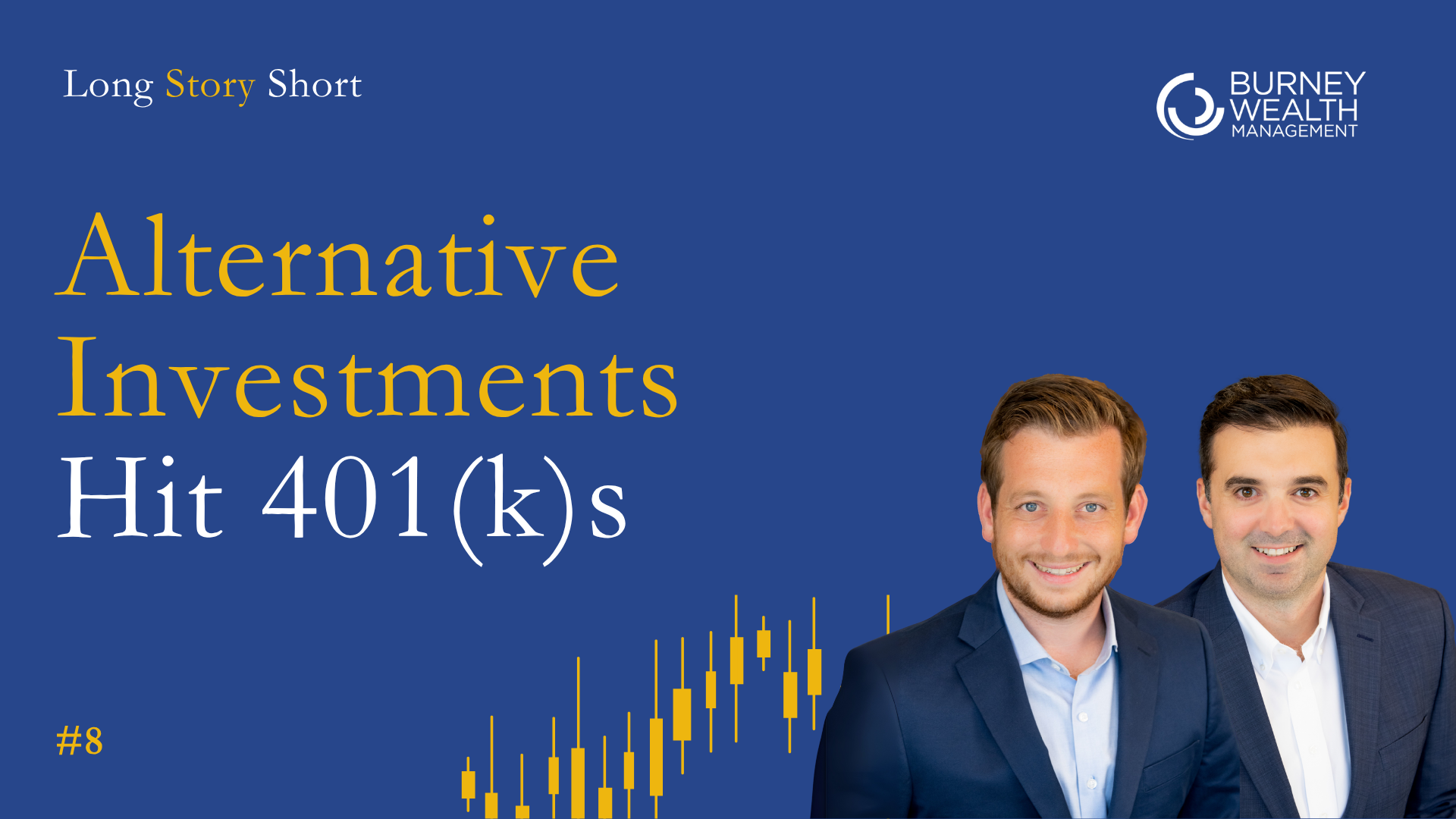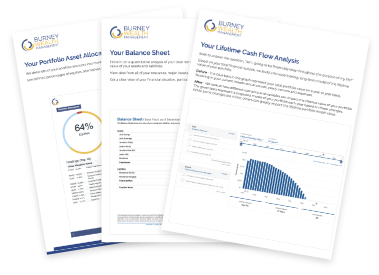Alternative Investments Hit 401(k)s and Retirement Tax Planning | Ep 8

Watch or listen to the episode below:
Alternative investments are coming to 401(k) plans. For the first time, everyday retirement savers will have access to private equity and private credit strategies that were previously reserved for endowments and ultra-wealthy families.
Andy and Adam have mixed feelings about this. On one hand, why shouldn't everyone get access to the same investment tools that sophisticated investors have used for decades? On the other hand, there's a reason those accredited investor rules existed in the first place.
Not All Alternatives Are Created Equal
The alternative investment world is full of high-cost and sometimes high-risk investments. High-fee products that promise sophisticated returns but deliver mutual fund performance with private equity complexity. The accredited investor rules were meant to protect people from exactly this kind of challenging investing.
Think about it. Many 401(k) participants aren’t familiar with the difference between large-cap and small-cap funds. Now we're adding private credit and private equity to the mix? Without serious education, this could be a disaster.
There's also the transparency issue. With private investments, you might not know if you're up or down for months. These are not investments that typically have standardized reporting requirements. That can feel stable when markets are volatile, but it's really just an illusion. You can't make good allocation decisions without knowing what your investments are actually worth.
The real question is whether 401(k) plans will offer the same high-quality strategies that institutions get, or whether participants will end up with watered-down versions that cost more and return less with greater risk.
Retirement Taxes Are a Different Animal
The conversation then shifted to something that catches most people off guard: how completely different taxes become when you retire.
During your working years, taxes are mostly automatic. Your employer takes money out of your paycheck. You file in April and either get a small refund or write a small check. Pretty simple.
When you retire, that simplicity disappears. You become responsible for every tax decision. Which account should you pull from this month? How much should you convert to Roth this year? Should you bunch your charitable giving to create tax savings?
Most people spend years obsessing over how much money they need to retire. They spend almost no time thinking about the tax complexity of actually living off that money. That's a mistake.
Three Buckets, Three Tax Treatments
By retirement, you probably have money in three different types of accounts. Your 401(k) and traditional IRA money gets taxed as ordinary income when you take it out. Your Roth accounts let you withdraw tax-free. Your brokerage accounts generate capital gains taxes that depend on how long you held the investments.
This actually creates tremendous flexibility. In a low-income year, you can convert traditional IRA money to Roth at favorable tax rates. In a high-spending year, you can pull more from your brokerage account to stay in lower tax brackets.
The sweet spot often comes in early retirement. Say you retire at 62 but wait until 67 to claim Social Security. Those five years might give you very low taxable income, especially if you can live off your brokerage account. That's prime time for Roth conversions.
The math is pretty straightforward. Would you rather pay 12% taxes now on a Roth conversion, or 22% later when your required minimum distributions kick in? For most people, the answer is obvious.
If you're charitably inclined, you can get even more creative. Make a large charitable gift in the same year you do a large Roth conversion. The charitable deduction offsets the conversion taxes, and you accomplish two goals at once.
What's Next
The AI investment theme is picking up steam again after the tariff drama finally settled down. It's not just the obvious names like Nvidia anymore. Utility companies that generate electricity for data centers are seeing momentum too.
The market barely reacted to the final tariff announcements because it had already spent months pricing in that risk. That's how markets work. They worry about tomorrow's problems, not yesterday's headlines.
Both alternative investments in 401(k)s and retirement tax planning share the same theme: more options create more complexity. The tools can be powerful, but only if you know how to use them.
Listen to the full conversation on Long Story Short:
The Burney Company is an SEC-registered investment adviser. Burney Wealth Management is a division of the Burney Company. Registration with the SEC or any state securities authority does not imply that Burney Company or any of its principals or employees possesses a particular level of skill or training in the investment advisory business or any other business. Burney Company does not provide legal, tax, or accounting advice, but offers it through third parties. Before making any financial decisions, clients should consult their legal and/or tax advisors.



